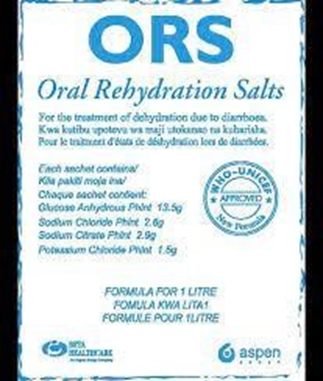A nurse is providing teaching to the guardian of an 11-month-old infant who has acute diarrhea. Which of the following food items should the nurse instruct the parent to provide to the infant?
Oral electrolyte solution
Applesauce
White grape juice
Chicken soup
The Correct Answer is A
A) Oral electrolyte solution helps prevent dehydration and replaces lost electrolytes in infants with acute diarrhea, making it the most appropriate choice.
B) Applesauce may worsen diarrhea due to its high sugar content.
C) White grape juice is also high in sugar and may worsen diarrhea.
D) Chicken soup is not recommended as it may be too heavy and rich for an infant with acute diarrhea.

Nursing Test Bank
Naxlex Comprehensive Predictor Exams
Related Questions
Correct Answer is D
Explanation
A. Offering sips of water 4 hours following surgery may be too early and could increase the risk of postoperative complications such as nausea and vomiting.
B. Assisting the adolescent to ambulate 12 hours following surgery may be too early depending on the surgical procedure and the adolescent's condition.
C. Maintaining the head of the bed at a 30° angle is incorrect because this position increases pressure on the spinal cord and can cause complications.
D. Logrolling the adolescent every 2 hours prevents spinal injury and promotes healing by keeping the spine in alignment
Correct Answer is D
Explanation
A) Neck vein distention is not typically associated with acetylsalicylic acid poisoning.
B) Jaundice is not typically associated with acetylsalicylic acid poisoning.
C) Polyuria is not typically associated with acetylsalicylic acid poisoning.
D) Hyperpyrexia, or extremely high fever, is a common symptom of severe acetylsalicylic acid poisoning due to its effects on the central nervous system and metabolism.
Whether you are a student looking to ace your exams or a practicing nurse seeking to enhance your expertise , our nursing education contents will empower you with the confidence and competence to make a difference in the lives of patients and become a respected leader in the healthcare field.
Visit Naxlex, invest in your future and unlock endless possibilities with our unparalleled nursing education contents today
Report Wrong Answer on the Current Question
Do you disagree with the answer? If yes, what is your expected answer? Explain.
Kindly be descriptive with the issue you are facing.
